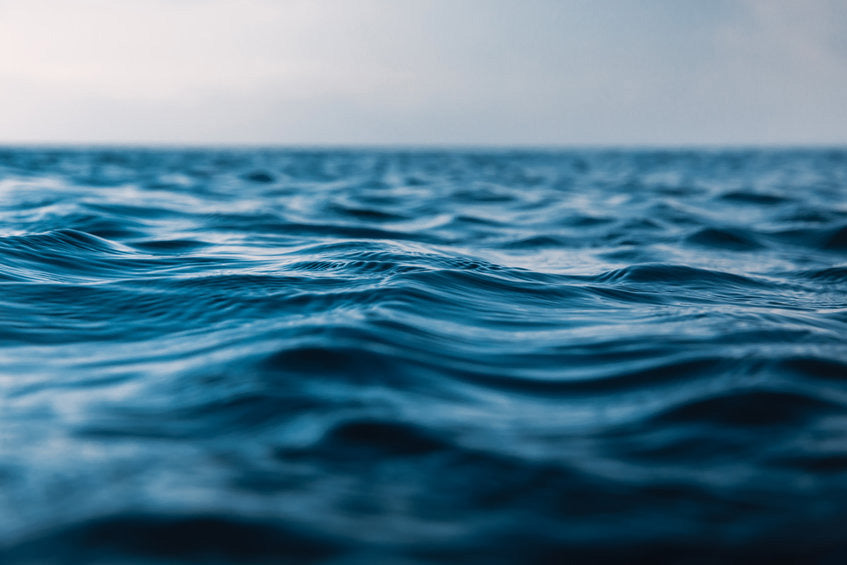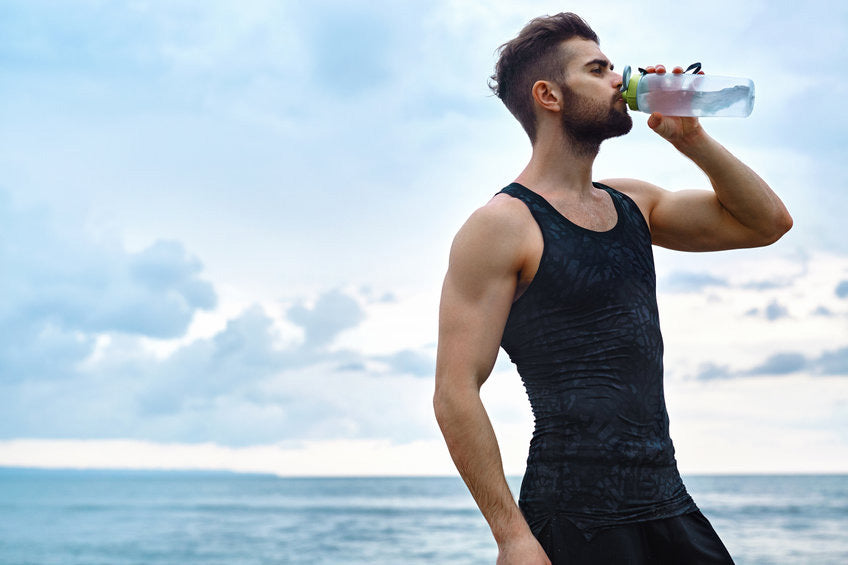What is Aquamin and How does it Aid in Hydration?
You can find Aquamin™ in RISE, GO, and HYDRATE. Read below to discover the host of clinically backed benefits from this incredible ingredient.
So what is Aquamin?
In a nutshell, Aquamin is a multi-mineral complex derived from the red marine algae Lithothamnion calcareum – that provides a host of health benefits from bone to joint and hydration [1]. This unique algae looks to the human eye more like what we would picture when think of a coral than an algae.
This elegant natural species has the ability to absorb calcium and magnesium directly into its cell walls in a honeycomb structure. The unique structure and the 72 trace minerals absorbed from the sea are what make the calcium in Aquamin more bioactive than the calcium carbonate derived from limestone.

Like many of nature’s best nutritional assets, the Lithothamnion calcareum algae comes from the ocean, in particular the pristine waters of the North Atlantic off of Iceland. The warm waters of the Gulf Stream combine with the cold waters of the Artic to create the ideal environment for the mineral content to collect and the resilient honeycomb structure to form. And of course, the harvesting of Aquamin follows international standards for sustainable marine aquaculture.
Why is Aquamin Important to You?
There are more than 33 peer-reviewed studies on Aquamin so far that extol its benefits for bone and gastrointestinal health. For bone health, the use of Aquamin in patients in knee pain, for example, has been correlated to a reduction in the use of pain relievers as much as 50 percent![2] The high mineral content in Aquamin makes it highly effective for individuals with gastrointestinal discomfort as well and has been shown to play a role in the overall maintenance of a healthier gut.
The Giant Benefit of Bioavailable Minerals for Hydration
One of the most dramatic attributes of Aquamin, however, is its benefits for hydration. Most of us – regardless of our levels of exercise – tend to suffer from chronic dehydration.[3] We need water (and minerals) before, during and after our physical activities. And, if we’re engaged in heavier physical or athletic exercise, we need even more.The calcium and magnesium help prevent muscle soreness and cramping, and together with the 72-plus trace minerals are an ideal match for the bioavailable structure that allows our bodies to utilize the these components most quickly – whether it be in the middle of a daily work project or even in the middle of a marathon race.
While it is possible for most of us to obtain sufficient minerals and electrolytes from a solid nutritional regimen, those of us who engage in heavy physical activity have a tendency to need even more. Additionally, certain nutritional regimens such as the Keto diet can increase the need for sufficient and optimized hydration as well.
What are the Signs of Dehydration?

In all, it is better to establish the habit of healthy hydration well before the outward signs of dehydration appear, and as studies indicate, the inclusion of bioavailable nutrition from an component such as Aquamin can help. So, start your hydration habit early each day and ensure you are replenishing your electrolytes and water from sunup to sundown to stay healthy.
1: http://aquamin.com/science/joint-health-research/
2: “New Research on the Benefits of Aquamin,” by Charles Weller, May 9, 2019, Ground Based Nutrition
3: “Your Ultimate Guide to Exercise and Hydration,” by Laurice Wardini, March 8, 2020, Ground Based Nutrition
